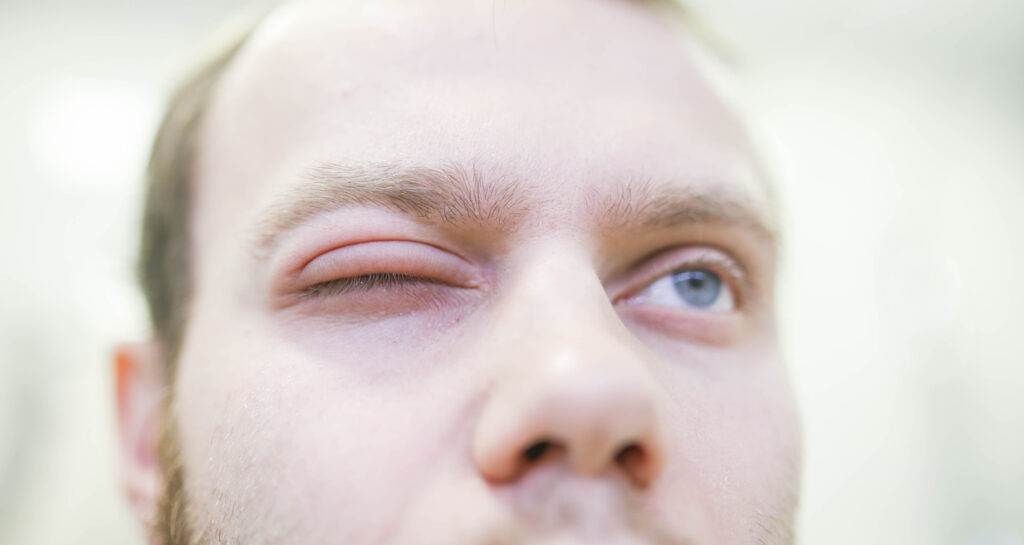Barzolvolimab ”profoundly” improves angioedema in patients with chronic spontaneous urticaria (CSU), according to new Phase 2 data presented at the European Academy of Allergy and Clinical Immunology (EAACI) Congress 2024 in Valencia, Spain.
Barzolvolimab is a humanized monoclonal antibody that specifically binds the receptor tyrosine kinase KIT with high specificity and potently inhibits its activity, which is required for mast cell function and survival.
The randomized, double-blind, placebo-controlled, parallel group Phase 2 study is evaluating the efficacy and safety profile of multiple dose regimens of barzolvolimab in patients with CSU who remain symptomatic despite antihistamine therapy to determine the optimal dosing strategy. For the study, 208 patients were randomly assigned on a 1:1:1:1 ratio to receive subcutaneous injections of barzolvolimab at 75mg every 4 weeks, 150mg every 4 weeks, 300mg every 8 weeks or placebo during a 16-week placebo-controlled treatment period. After 16 weeks, patients then enter a 36-week active treatment period, in which patients receiving placebo or the 75mg dose are randomized to receive barzolvolimab 150 mg every 4 weeks or 300mg every 8 weeks; patients already randomized to the 150mg and 300mg treatment arms remain on the same regimen as during the placebo-controlled treatment period. After 52 weeks, patients then enter a follow-up period for an additional 24 weeks. The primary endpoint of the study is mean change in baseline to Week 12 in UAS7 (weekly activity score). Secondary endpoints include other assessments of safety and clinical activity including ISS7 (weekly itch severity score), HSS7 (weekly hives severity score) and AAS7 (weekly angioedema activity score).
Barzolvolimab demonstrated significant improvements in AAS7 in patients with angioedema across all doses at Week 12. This improvement was rapid (within 2 weeks) and durable (continued through 12 weeks). Barzolvolimab also demonstrated strong improvement in AAS7 independent of omalizumab status at Week 12. Approximately 20% (n=41) of enrolled patients received prior treatment with omalizumab and more than half of these patients had omalizumab-refractory disease. These patients experienced a similar clinical benefit as the overall treated population within their individual dosing groups consistent with the barzolvolimab mechanism of action, the researchers report.
Patients on barzolvolimab experienced a >8 point improvement in AAS7 (considered a clinically meaningful result) across all doses compared to placebo. Barzolvolimab increased angioedema free days compared to placebo through 12 weeks. Patients in the 300mg cohort were angioedema free 77% of the time over the 12-week period.
Barzolvolimab’s maker Celldex previously announced that the Phase 2 study in CSU met its primary and secondary endpoints at 12 weeks with clinically meaningful and statistically significant decreases in the Urticaria Activity Score summed over 7 days (UAS7) compared to placebo across multiple dose groups and demonstrated a favorable safety profile.
“The majority of patients with severe CSU suffer with angioedema, which is often extremely painful and causes disfigurement, dramatically impacting quality of life,” says Diane C. Young, MD, Senior Vice President and Chief Medical Officer of Celldex Therapeutics, in a news release. “Consistent with previously reported clinical outcomes, we observed rapid, durable and significant angioedema relief, including in omalizumab refractory disease. These data continue to support barzolvolimab’s potential to become a transformative treatment option for CSU and we look forward to moving closer to this goal with the initiation of our Phase 3 studies this summer.”


